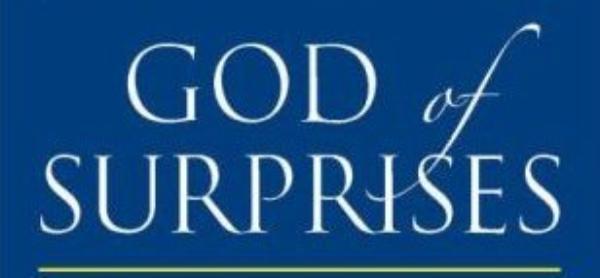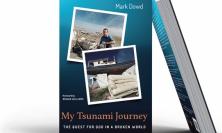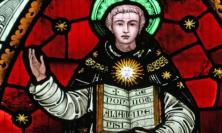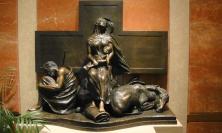When God of Surprises first came out in 1985 it was my book of the year: I gave away more than 50 copies of it to students for the priesthood. I felt I was part of it, as eight years previously I’d had Fr Gerard as my spiritual director for the full 30-day Spiritual Exercises of St Ignatius, and he dedicates the book “In gratitude to all with whom I have walked the inner journey”.
The book is about finding hidden treasure, and it is a treasure in itself. It is a modern day Thesaurus Spiritualis, containing rich veins and nuggets of practical wisdom throughout. In its own way it has become a spiritual classic, with over 50,000 copies sold over here in Britain. Now in its third edition – the second was in 1996 – this one is aimed at the American market, and has a Foreword by no less than Eugene H Peterson (of The Message fame), who tells us that we’ll not “yawn or doze” whilst reading this book, for it is “seasoned wisdom”.
It is written first and foremost for “bewildered, confused or disillusioned Christians”. Fr Gerard turns what at first appear to be negatives into positives, for God is, precisely, a God of surprises, who breaks into the human heart and soul with fresh vision and understanding. He has a refreshing honesty about his own searching self, and by assuming the role of a compassionate wounded healer, begins to break open the words of Scripture as a here-and-now living reality, a contemporary meeting with the risen Christ.
As a Jesuit formed and informed by the Ignatian spirit and tradition, Fr Gerard finds God in all, not in spite of all. This echoes and re-echoes regularly throughout the book. The facts are kind, and God is in the facts. At the end of each chapter he provides tools for digging. And somehow he manages to get in the suggestion of writing your own obituary by the end of Chapter 1 without putting off the reader from delving deeper. Because he suggests you write “the kind of obituary which, in your wildest dreams, you would love to have”. [p9]
This is a book which gets the reader in deeper touch with self, not least with the desires which are the core of our lives. There is no fear in facing the bogeymen, with fascinating coverage of the Gerasene demoniac (from Mark 5), which lurks in all of us. False images and notions of God – not least “good old Uncle George” – are faced and abandoned. Ways into personal prayer are suggested with a lightness of touch. As he notes “Training in prayer should be the main preoccupation and service given by the bishops and clergy to the adult members of the Church”. [p23]
Fr Gerard blends the institutional, critical and mystical elements of ourselves, so as to clear the way to the field of our inner experience in which our treasure lies hidden. No wonder, then, that he suggests writing your own faith autobiography, as a means of getting into the mystery of being alive in God’s love.
Using our imagination to enter into the Gospel stories – and he gives plenty of passages for pondering – is central to the book, and in doing this, the humanity of Jesus is key. The human Jesus had to grow in his own faith and experience, and struggle with his human emotions. Too often in the past the divinity of Christ was stressed, to the detriment of his humanity. In our coming to know Christ, in that deepest sense of deepfelt, intimate knowing-by-heart, we come to realise that, “Whenever and whatever we read of Christ in the Gospel, we are also reading our own self-portrait, for Christ is what we are called to become.” [p114]
The book ends with a chapter on the nuclear threat, as the author looks from his window over the beautiful Clwyd valley in North Wales, a view he had for his years at St Beuno’s Spirituality Centre, where the book gestated. It is a stunning view, with a lush green valley, sea and mountains stretching into the distance. He imagines this valley as a nuclear wasteland, then reflects that the lust for destruction is within us all, as we seek false security. And he ends: “God is calling us to a radical conversion and to a depth of trust in him which will allow God’s powerto be released in our weakness, God’s wisdom to be revealed in our bewilderment, God’s truth to break through our disillusion.” [p160]
This is a dangerous book. It will change you, if you let it, for it is all about the challenge of becoming another Christ. Buy it if you dare!
Denis Blackledge SJ






